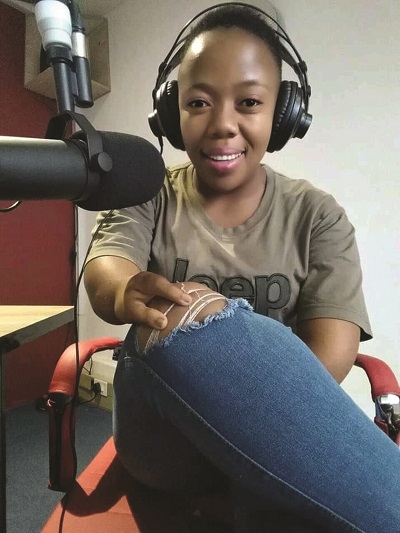By Ts’episo Posholi
MASERU – According to Scott Lindgren (intellectual and developmental disabilities human rights.gov.au) an estimated 1.3 billion people experience significant disability, this represents 16% of the world’s population or 1 in 6 of us.
Disability is any condition impacting body or mind to make it more difficult for the person with the condition to do certain activities and interact with the world around them.
The life of some people with disabilities is cut short by 20 years as opposed to those without disabilities. People with disabilities have twice the risk of developing conditions such as depression, asthma, diabetes, stroke, obesity or poor oral health. People with disabilities face many health inequities which arise from stigma, discrimination, poverty, exclusion from education and employment and barriers faced in the health system itself.
Stymo Ocenea Kolo, a 29-year-old mosotho woman who was born in a family of eleven (11) kids, her father and ten of her siblings have six fingers on their hands except her, she has a rare condition of short hands and only two fingers in each hand. She is a radio presenter at Harvest FM where she hosts a show called BBM (Bacha ba matla).
“It has come to my realization the hardship we disabled people go through trying to come to terms with our various conditions. Eventually we feel comfortable in our own skin but then again who sets the rules on what “normal” really is and to whom?” Stymo asks.
In an exclusive interview with Stymo she sheds some light and give hope to others living with disability. She also comforts parents and encourages them to support their children in that state. In most cases parents seem to be ashamed of their kids because of their disabilities unaware that their actions may negatively impact the lives of those children in the future.
This also applies to people who are living with disabled people, our society is so uneducated and judgmental even on things they have absolutely no control of, these people who mock, criticize make fun of, making them believe that they are not good enough live in the same society as them. Forgetting that one day tables can easily turn, they themselves could find themselves in the same boat or one of their loved ones due to life’s uncertain events become disabled.
Children also need to be taught of how different we all are at a very tender age, they are the future we need to mold them into civilized human being cable of inclusion on all aspects after all they are the future. There is nothing wrong with being different, different isn’t always abnormal it is just unusual but not necessarily a bad thing.
In an interview about how her disability affects her day to day life this is what she had to say “I grew up in a very supportive family so that made it almost impossible for me to get angry when people teased me about my hands. Sometimes other kids would laugh at me while others ran away when I wanted to play with them but sadly they would be afraid of my hands.
But as I grew up and gained more confidence, I fell in love with my hands even more. If I was given a chance to choose hands for myself I would still choose these ones because this is how God created me. I believe he has his own purpose with me, this is who I am! However it would be refreshing if people stopped walking on egg shells around me and accept me for who I am, let me embrace my difference. They should stop feeling sorry for me or treating me different, I am happy with how God made me.”
In conclusion she stated that she has achieved some things which she believes that if it was not because of her condition, it would have been next to impossible to accomplish. One of them being a non-government organization (NGO) “Stymo foundation”, where she helps disabled and the homeless people with food, clothes, and sanitary pads. Often she seeks donations from good Samaritans to assist when she is low on resources so she can continue with her noble work.
In ending Stymo is hopefully her story will serve as motivation to people who thought being disabled can limit a person’s success or participation in public activities. She defied the expectations and went against all odds to achieve her goals and be independent.


